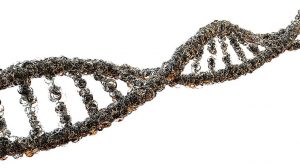Definition
noun, plural: foramina, foramens
Any opening or perforation, orifice or fenestra, especially through a bone, and may serve as a passage for muscles, nerves, blood vessels, or other structures
Supplement
Foramen is an anatomical term that refers to any opening in the body of animals, including humans. It is an opening especially through a bone, and serves as a passage to muscles, nerves, blood vessels or other structures that connect with another body part. A relatively large opening though is foramen magnum. It is an opening in the occipital bone in the cranium and serves as an outlet of the spinal cord and medulla to enter from the skull to the vertebral column. Another foramen is the foramen ovale, which is a hole between the venous and arterial sides of the heart of the fetus.
Word origin: Latin forāmen (“aperture, opening”)
Related term(s):
- Bochdaleks foramen
- Duverneys foramen
- Emissary sphenoidal foramen
- Epiploic foramen
- External acoustic foramen
- Foramen intervertebrale
- Foramen lacerum
- Foramen magnum
- Foramen of arnold
- Foramen of transverse process
- Foramen of vena cava
- Foramen omentale
- Foramen opticum
- Foramen ovale
- Foramen palatinum majus
- Foramen parietale
- Foramen petrosum
- Foramen spinosum
- Greater palatine foramen
- Huschkes foramen
- Incisive foramen
- Incisor foramen
- Internal acoustic foramen
- Intervertebral foramen
- Lacerated foramen
- Monros foramen
- Neural foramen
- Nutrient foramen
- Optic foramen
- Petrosal foramen
- Retzius foramen
- Round foramen
- Stensens foramen
- Supraorbital foramen
- Valve of foramen ovale
- Venous foramen
- Vicq dazyrs foramen
- Weitbrechts foramen
- Winslows foramen







